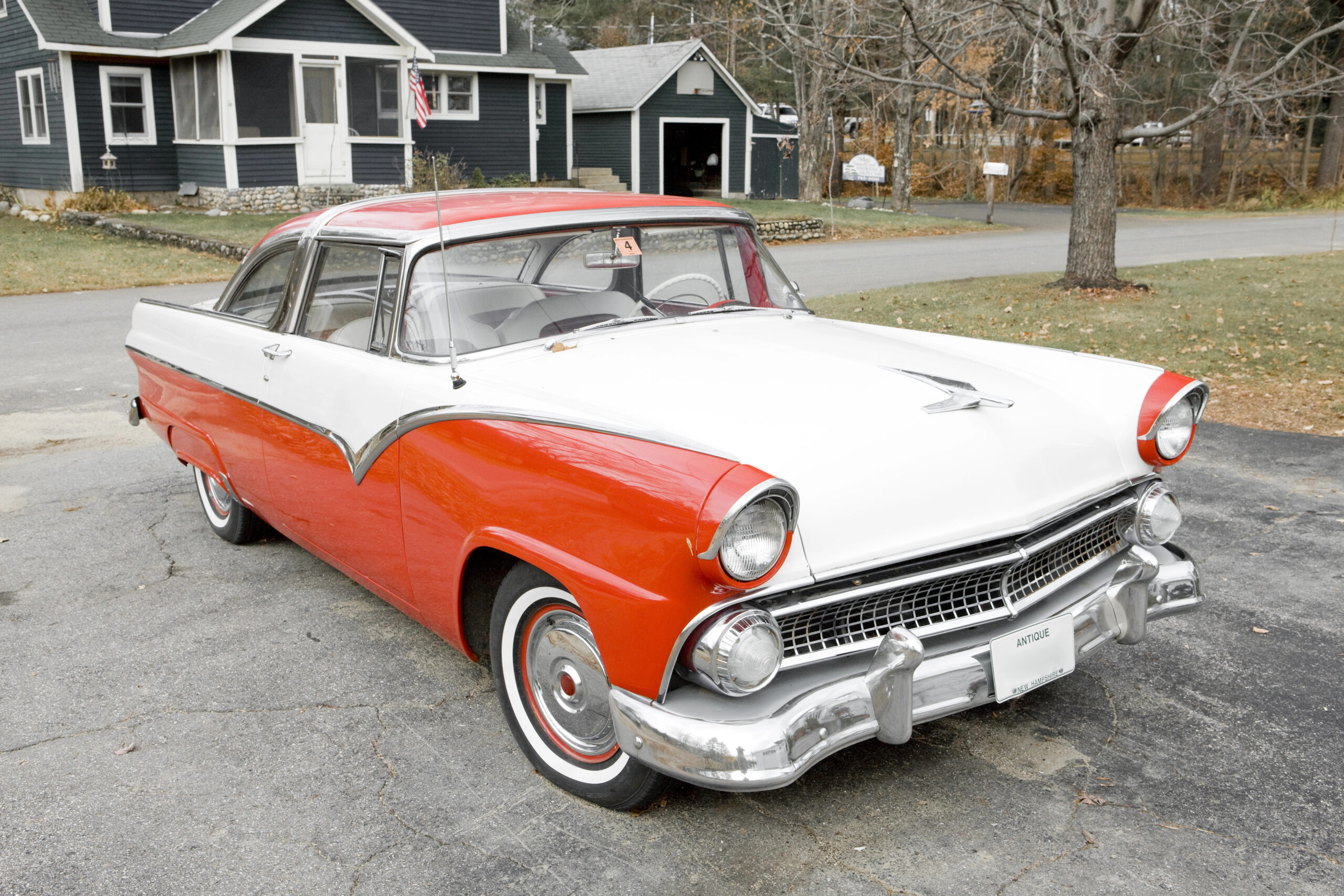Specialty car insurance companies like Hagerty, Grundy and American Modern offer some of the best coverage for classic, vintage and other specialty or high-value vehicles. Despite highly-specialized provisions, car insurance premiums for classic cars average about 20% to 40% less than regular auto insurance policies.
Classic car insurance: The basics
Classic or collector car insurance is designed to meet the needs of drivers with unique, rare and often high-value vehicles. The qualifiers for classic car coverage vary by provider, but this umbrella term often applies to everything from antique pickups to select modern exotic sports cars.
Classic car insurance vs. traditional insurance: How each works
The biggest difference between traditional car insurance and classic car insurance is agreed or guaranteed value coverage. This means that your insurer promises to pay the appraised value if your vehicle is stolen or deemed a total loss after an accident, without subtracting for certain factors.
With standard auto coverage, insurers pay your vehicle’s actual cash value (ACV) minus depreciation. This depreciation accounts for your vehicle’s condition, mileage and market conditions at the time of the accident. In other words, your total loss claim is limited to your vehicle’s market value on the day it was wrecked.
By contrast, classic car insurance companies issue a check for the amount you and your insurer agreed on at the time your policy was issued, regardless of market fluctuations or vehicle use. Depending on your insurer, classic car owners may also have the option to update their vehicle’s value if they get a new appraisal, complete restoration work or add rare parts.
Classic car insurance offers highly-customizable coverage
Each state has its own minimum coverage requirements regarding liability, personal injury protection and even uninsured motorist coverage. Beyond those minimums, you can purchase additional coverage to better protect yourself from damages and loss, though many classic and custom car policies require drivers to buy comprehensive and/or collision insurance.
Classic car policies typically offer the same basic types of coverage as you’d find with a regular full coverage auto insurance.
| Coverage | Definition |
|---|---|
| Collision insurance | An optional coverage type that pays to repair or replace your car if it’s damaged in a collision with another vehicle. You can only file an accident-related claim for your vehicle’s repairs if your policy has collision coverage. |
| Comprehensive insurance | An optional coverage type that covers damage to your vehicle caused by non-collision hazards, such as car theft, falling tree branches, hail and other unexpected events. |
| Bodily injury liability (BI) | Pays others’ medical costs in an accident you cause, up to your policy limits. It’s mandatory in most states. |
| Property damage liability (PD) | Pays for repairs or replacements of any vehicles or objects you damage in a crash, up to your policy limits. It’s mandatory in most states. |
| Personal injury protection (PIP) | Helps cover medical expenses for you and your passengers after a car accident, regardless of who caused it. This is required in some states. |
| Medical payments | Additional coverage outside of PIP that pays for medical care for you and your passengers after an accident, regardless of who caused it. This is optional in most states. |
| Uninsured/underinsured motorist coverage (UM/UIM) | Covers you, your passengers and any property damage in a case where the other driver is at fault but doesn’t have insurance, or carries insufficient coverage to pay for your costs. This is required in some states. |
Learn more: Compare liability insurance vs. full coverage insurance
There are also some special types of coverage that may be available on a classic car policy, which you won’t often find with standard auto coverage.
| Type of coverage | How it works |
|---|---|
| Cherished salvage coverage | Provides a total loss payout and also lets you keep your totaled vehicle, minus its salvage value and your deductible. |
| Cash settlement option | Gives you a cash payment after a total loss without requiring you to repair or replace the vehicle. |
| Specialized roadside assistance | All the basic roadside assistance perks, plus guaranteed flatbed transport or tow charge reimbursement. |
| Spare parts, automotive tools and automobilia coverage | Allows coverage for items lost in a covered event, even if they’re technically not part of your vehicle. |
| No attendance clause | Ensures your vehicle is protected when it’s on display, even if you’re not with it. |
| Auto show medical reimbursement | Coverage for injuries that occur at, or on your way to or from, a car show. |
| Restoration coverage | Coverage for vehicles throughout the restoration process; this often includes periodic increases to keep pace with your restoration work as well as coverage for tools and parts. |
| Extended mileage | On limited-mileage plans, some providers offer increased mileage when traveling to shows or driving for pleasure. |
Eligibility for classic car insurance
Because classic car insurance policies can sometimes offer hundreds of thousands of dollars worth of coverage, both the vehicle and driver must meet certain requirements to qualify.
Vehicle eligibility
Providers sell classic and collector car insurance policies to cover everything from a retired fire truck to a brand new Ferrari. For this reason, classic car insurance can be a bit of a misnomer.
According to the Classic Car Club of America (CCCA), a classic car is one that was a high-priced, top end vehicle when it was built; produced in limited quantities; and manufactured between 1915 and 1948. However, this isn’t the criteria for every insurer.
In fact, you’ll find that most providers use the term “classic car” or “collector car” as an umbrella term to cover policies designed for the wide range of vehicle types.
- Classic cars: Vintage cars and vehicles usually at least 19 to 24 years old, still in good working condition or restored, and holding a greater value than other vehicles of the same model year and make.
- Antique cars: A vehicle at least 25 years old and restored or in good working condition.
- Kit cars and replicas: A replica or reproduction of a classic or collector vehicle.
- Modified cars and customs: A vehicle that has been significantly altered from its original condition in a way that could affect its value or safety (e.g. a stock Honda Civic equipped with nitrous oxide or a hot rod Ford Model T).
- High-performance, exotic, and import cars: Modern muscle cars, exotic cars, imports and other high-value vehicles of any model year.
- Miscellaneous motor vehicles: Motorcycles and scooters, antique and classic tractors, or vintage military vehicles.
Additional restrictions may apply.
- Some providers, like Nationwide, require motorists to own another registered vehicle for commuting and other daily use, in order to qualify for classic car coverage.
- Many classic car insurance policies require policyholders to store their vehicle in a locked garage or storage unit to maintain coverage.
Driver eligibility
Most insurers also have qualifications that classic car owners must meet to be eligible for coverage. These may involve the driver’s:
- Age.
- Years of driving experience.
- Driving record and history.
You may also be asked to agree that you won’t race your insured vehicle.
The best classic car insurance coverage and providers
Insurance rates for classic car coverage usually average between $400 and $1,000 a year. However, rates can vary due the wide range of vehicles these policies cover, the value of these vehicles, the level of coverage provided and the deductible you choose.
Though some top insurance companies offer classic car insurance coverage, many partner with specialty insurers to underwrite their policies instead. To help you sort through the options, here’s a rundown of some of the top classic car coverage providers.
| Provider | Why we love it |
|---|---|
| Hagerty | |
| Grundy Insurance | |
| Safeco | |
| American Modern | |
| American Collectors Insurance | |
| Heacock Classic Auto Insurance | |
| State Farm |
Methodology:Our selections for best classic car insurance providers are based on a comparison of top nationwide popular and specialty providers. Insurers selected for recommendation offer the widest options for discounts, coverage and deductible customization, and vehicle usage.
FAQ
-
What is the best car insurance for old cars?
-
Does AAA offer classic car insurance?
-
How do I insure my classic car as a daily driver?

Sarah Gray is an insurance writer with nearly a decade of experience in publishing and writing. Sarah specializes in writing articles that educate car owners and buyers on the full scope of car ownership—from shopping for and buying a new car to scrapping one that’s breathed its last and everything in between. Sarah has authored over 1,500 articles for Jerry on topics ranging from first-time buyer programs to how to get a salvage title for a totaled car. Prior to Jerry, Sarah was a full-time professor of English literature and composition with multiple academic writing publications.

Expert insurance writer and editor Amy Bobinger specializes in car repair, car maintenance, and car insurance. Amy is passionate about creating content that helps consumers navigate challenges related to car ownership and achieve financial success in areas relating to cars. Amy has over 10 years of writing and editing experience. After several years as a freelance writer, Amy spent four years as an editing fellow at WikiHow, where she co-authored over 600 articles on topics including car maintenance and home ownership. Since joining Jerry’s editorial team in 2022, Amy has edited over 2,500 articles on car insurance, state driving laws, and car repair and maintenance.

Stephanie Colestock is a seasoned writer specializing in personal finance. With over 14 years of experience, she crafts insightful and accessible content on a wide range of financial topics, including insurance, credit and debt management, banking, investing, retirement planning, and household finances.
Her bylines appear in top-tier publications such as TIME, Fortune, MSN, Forbes, USA Today, Money, Fox Business, and CBS. Stephanie\’s deep understanding of complex financial concepts and her ability to communicate them clearly have made her a trusted voice in the industry.
When she’s not writing, Stephanie enjoys helping individuals make smarter financial decisions through her engaging and well-researched articles.









